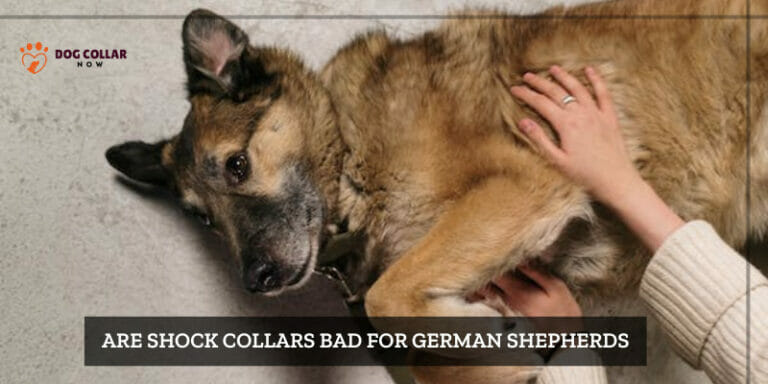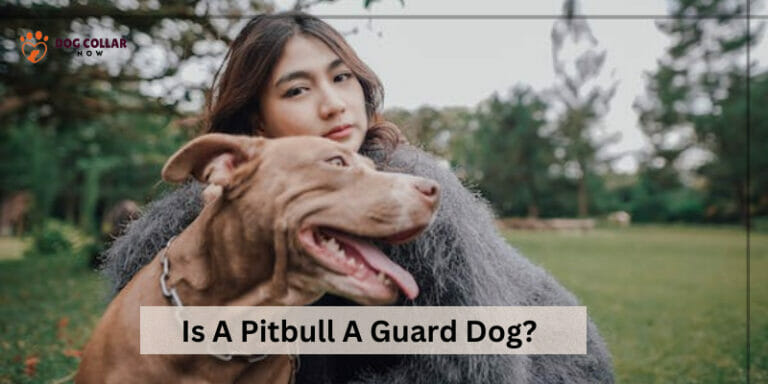Should I Punish My Dog For Bad Behavior – To Punish Or Not

Dealing with a mischievous pup? The age-old question of whether to dole out discipline or take a different approach can leave any dog owner pondering. Let’s dive into the world of dog behavior and find a positive way forward!
Instead of resorting to punishment, consider using positive reinforcement like treats, praise, and consistent training to guide your dog toward better behavior. This not only strengthens your bond but also helps your dog understand what’s expected in a fun and rewarding way!
Dive into our blog post as we tackle the age-old question: Should I punish my dog for bad behavior? Discover responsible ways to guide your furry friend and build a strong bond. Learn why positive methods triumph and grab expert tips for a well-behaved pup!
Should I Punish My Dog For Bad Behavior – To Punish Or Not?
When faced with a misbehaving dog, it’s only natural to consider punishment as a way to correct their behavior. After all, we’ve been conditioned to believe that discipline equals good behavior. However, when it comes to our furry friends, the approach needs to be different.
Psychological Impact
Dogs are highly sensitive creatures who thrive on love and positive reinforcement. Punishment can lead to fear, anxiety, and even aggression in your beloved companion.
Ineffective Communication
While punishment may temporarily stop unwanted behavior, it fails to address the underlying cause of the problem. By punishing your dog without teaching them an alternative behavior or providing proper guidance, you miss out on an opportunity for growth and learning..
Positive Reinforcement
Works Better: Reward-based training is proven effective in shaping desired behaviors while strengthening the bond between you and your pup. Focus on praising and rewarding good behavior rather than punishing bad behavior.
Long-lasting Results
Punishment tends to suppress behaviors temporarily but doesn’t offer a long-term solution for creating lasting change in your dog’s behavior patterns.
Remember that being a pet parent means guiding your puppy with kindness and compassion rather than instilling fear through punitive measures.
5 Reasons You Should NEVER Punish Your Dog
1. Damages the Trust: Punish a dog for bad behavior can greatly damage the trust and bond between you and your furry friend. Dogs are highly sensitive creatures, and physical or harsh punishments can make them fearful of you, leading to a breakdown in communication.
2. Increases Aggression: If you choose to punish your dog physically, it may escalate their aggression instead of curbing bad behavior. This is because they might associate fear with certain actions or situations, causing them to react defensively or even lash out.
3. Hinders Training Progress: Punishment-based dog training methods often fail to address the root cause of unwanted behaviors. While punishment may temporarily suppress the behavior, it doesn’t teach your dog what it should be doing instead. Positive reinforcement techniques, on the other hand, focus on rewarding good behavior and teaching alternatives.
4. Creates Anxiety And Stress: Physical punishments create anxiety and stress in dogs which can have long-lasting negative effects on their overall well-being. Dogs thrive in an environment where they feel safe and loved; punishment disrupts that sense of security.
5. Damages Mental Health: Consistently punishing your dog not only damages their mental health but also hinders their ability to learn new things effectively. Dogs need clear guidance through positive reinforcement rather than being subjected to fear-inducing tactics that hinder their learning potential.
6. Gentle Approaches: While some may turn to tools like a dog collar for corrective measures, it’s crucial to note that modern training techniques emphasize positive reinforcement over punishment. Opting for training collars that promote gentle guidance, rather than discomfort, can align with fostering a positive connection with your canine.
Remember, as a responsible pet parent, it’s important to discipline your dog without resorting to physical punishment or harsh methods that could harm both their emotional well-being and our relationship with them.
Expert Training Tips For A Positively Strong Dog-Owner Relationship
1. Consistency Is Crucial
Dogs thrive on routine and consistency. Set clear rules and boundaries from the beginning and stick to them. Use consistent commands, rewards, and consequences for both good and bad behavior.
2. Favorable Reinforcement
Rewarding your dog’s good behavior with treats, praise, or playtime is much more effective than punishment. Positive reinforcement not only motivates your dog but also strengthens the bond between you two.
3. Clear Communication
Dogs rely heavily on body language and tone of voice to understand what we want from them. Be clear in your commands, use hand signals if necessary, and maintain a calm yet assertive tone when giving instructions.
4. Patience Is Key
Training takes time and patience. Remember that dogs will learn at their own pace, so be patient with them during the process. Avoid getting frustrated or resorting to punishment when progress seems slow.
5. Learn From Professionals
Consider enrolling in obedience classes or hiring a professional trainer who uses positive reinforcement techniques.
Being able to observe an experienced trainer in action can provide valuable insights into effective training methods.
Don’t hesitate to seek guidance whenever needed.
By following these expert tips, you’ll be well on your way to establishing a strong bond with your furry friend while effectively teaching them how to behave appropriately.
How To Punish Your Dog Effectively
When it comes to disciplining our furry friends, it’s important to remember that punishment should never involve physical or aggressive measures. Instead, focus on reward-based learning and redirecting their behavior towards more desirable actions. Here are some effective strategies for guiding your dog’s behavior:
1. Redirect Their Attention: If you catch your dog engaging in unwanted behavior, such as chewing on furniture, calmly interrupt them and redirect their attention to a chew toy or bone.
2. Use Time-Outs: Just like with children, dogs can benefit from taking a break when they misbehave. Create a designated area where they can calm down for a few minutes without any interaction.
3. Ignore Bad Behavior: Sometimes, negative attention can reinforce the very behaviors we want to discourage. By ignoring undesirable actions and rewarding positive conduct instead, you’re sending a clear message about what is acceptable.
4. Seek Professional Help If Needed: If you’re struggling with training or behavioral issues that seem beyond your control, don’t hesitate to reach out to a professional trainer or animal behaviorist who can provide guidance tailored specifically for your pooch.
Remember, discipline a puppy should always be done with love and respect for your pet’s well-being. By using positive reinforcement techniques rather than punishment methods, you’ll build trust and create an environment where learning becomes enjoyable for both you and your four-legged companion.
Conclusion
When it comes to your furry companion’s behavior, your duty isn’t just to guide, but to create a playground for positive conduct. Patience, consistency, and understanding are your tools. The result? Your pup mastering the art of behaving like a champ in any scenario.
If you’re struggling with training or need professional assistance, consider consulting a certified dog trainer who specializes in reward-based training techniques. They can help tailor a training plan specifically for your pup’s needs.
Remember, dogs are no strangers to brilliance. They thrive on positivity. So why not ditch the scoldings and opt for the high-fives? So the next time you find yourself asking “Should I punish my dog for bad behavior?“, pause for a moment and reconsider the options available – choose kindness over harshness and watch as both you and your furry friend thrive together!
FAQs
What is the difference between punishment and favorable reinforcement in dog training?
Punishment refers to applying negative consequences for undesirable behavior, whereas positive reinforcement focuses on rewarding and reinforcing desired behavior. Punishment can create fear and mistrust in dogs, while favorable reinforcement encourages and motivates them to repeat desired actions.
How can I discipline a dog that barks excessively?
To discipline a dog that barks excessively, try to identify the triggers for their barking and address the underlying cause. Use favorable reinforcement to reward them when they remain quiet and redirect their attention to a more appropriate activity.
Is it okay to hit my dog as a form of discipline?
No, hitting or physically harming your dog is not an acceptable form of discipline. It can lead to fear, anxiety, and aggression in your pet. There are more humane and effective ways to discipline and train your dog, such as reward-based learning and redirecting their behavior.
Should I scold my dog when they do something wrong?
Instead of scolding your dog when they do something wrong, focus on redirecting their behavior and reinforcing the desired actions. Scolding can create fear and anxiety in your dog, which may not lead to effective discipline.
How can I correct my dog’s behavior when they are acting out?
When your dog is acting out, it’s important to remain calm and composed. Instead of punishment, redirect their behavior to an appropriate activity and reward them when they comply.






